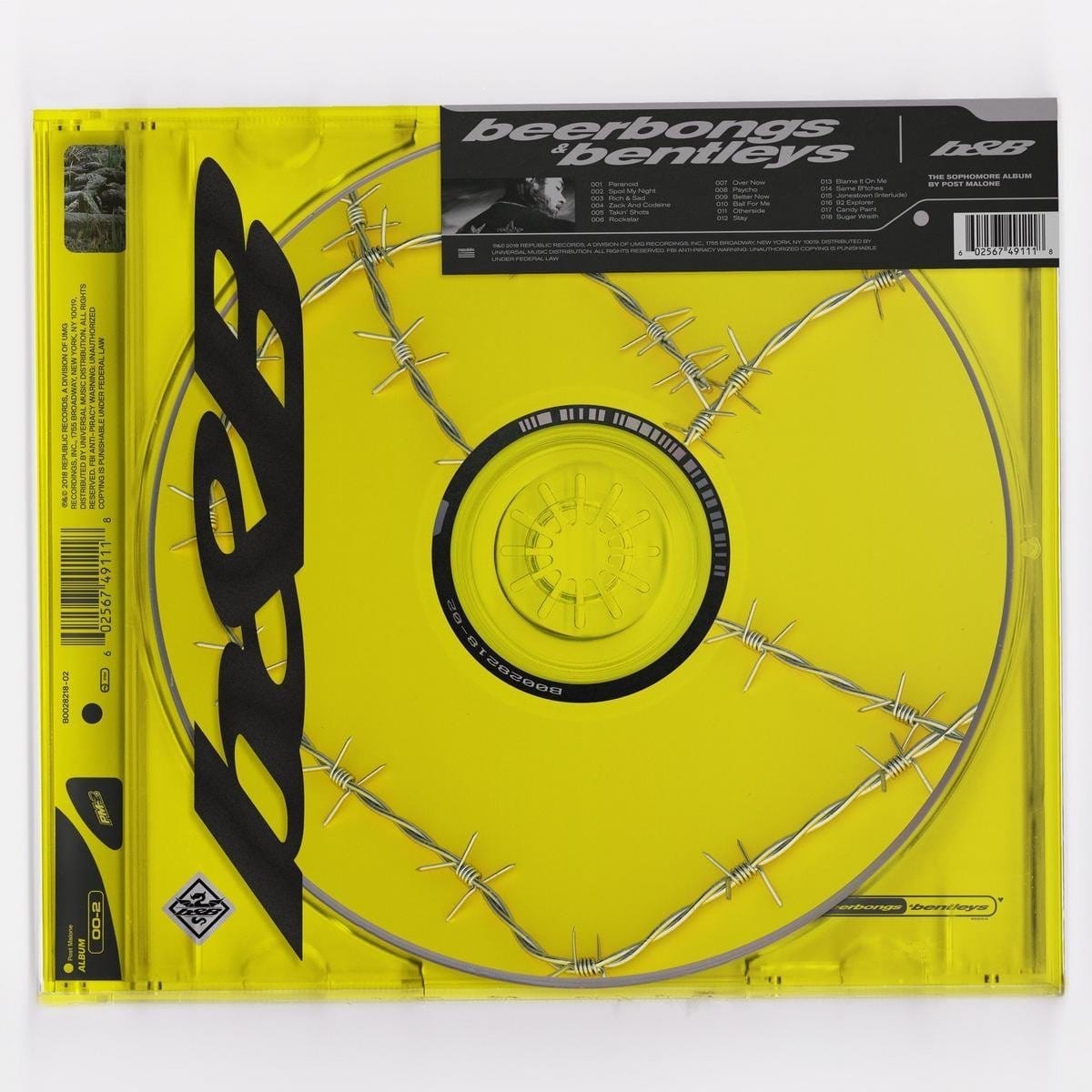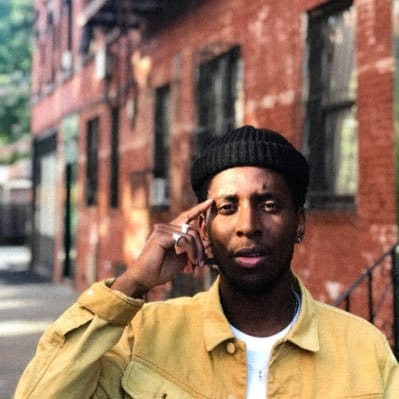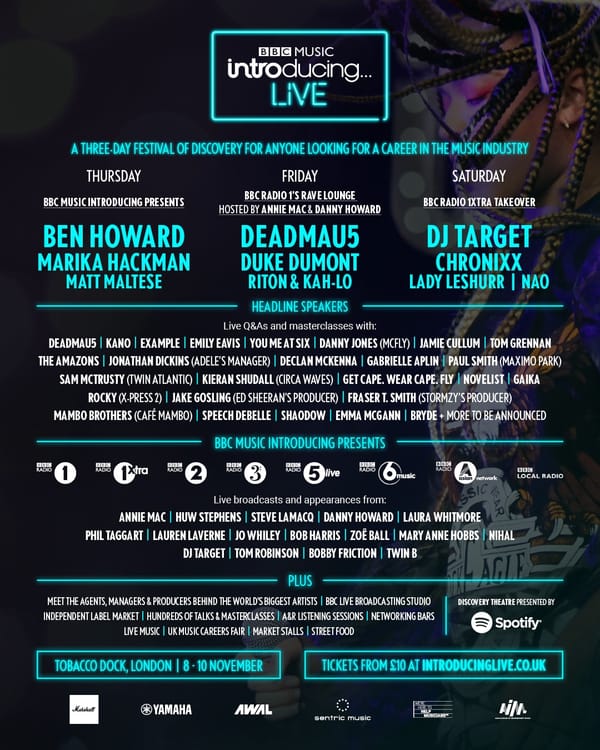Is Post Malone culpable for exploiting hip-hop?
Jordan Bunke considers the causes and consequences of Post Malone’s success, wondering if he has bastardised hip-hop on his path to success.

The 2010s have marked a significant shift in the music industry and music consumption in two interesting ways: platform and genre. Consumers are increasingly moving away from purchasing music, whether vinyl, CDs, or downloads, and moving towards streaming. As part of their efforts to accurately capture the music that is being listened to most, major music chart tabulators like Billboard have adjusted to this trend. As of 2018, streaming constitutes the single largest category for the weighting of songs on the Billboard Hot 100—more than both radio airplay and digital sales. Spotify is the largest paid subscription music streaming service with over 71 million subscribers and a 30 million subscriber lead over Apple Music. The genres of music that dominate the charts have also shifted. In 2017, for the first time in history, hip-hop became the most listened-to genre of music in the US, and its lead has only extended in the time since. This shift can be linked in part to the fact that the primary platform of music consumption is no longer radio, where censorship and a lowest-common-denominator mindset led to the prevalence of pop music. Now that most music consumers are actively choosing what they listen to more so than in times past, (curating playlists, playing artist radio) genres that are censored by gatekeepers gain more consumption.
Another factor that explains the rise of hip-hop is the shift within hip-hop towards a more pop-friendly soundscape, issued in part by crossover acts like Kanye West and Drake about a decade ago. It is hard to trace common stylistic and sonic elements from hip-hop in the 1980s and hip-hop today, which leads to the assertion that, by and large, hip-hop is a formless genre. There are no real musical criteria, tempo, drum pattern, or anything inherent in the music that is required for a song to be considered hip-hop by consumers. Rather, the genre is commonly characterised by characters: subject matter, lingo, tropes, and participants. This sort of mischaracterisation and, dare I say, bastardisation of hip-hop has been occurring in the public arena for a few years now, and it has resulted in a quagmire that has received ample attention from several outlets, from music blogs to LA Times think pieces: Post Malone.
If someone asked me what the most streamed album of 2018 was, and I didn’t know better, I would respond, “Scorpion by Drake” without a moment’s hesitation. In terms of charting domination, tour revenue, and his uncanny ability to occupy the zeitgeist, it is hard to dispute that he is the biggest music act in the world. However, I would be wrong. The most-streamed album of 2018, at least on Spotify, is Post Malone’s Beerbongs & Bentleys. Upon investigation, this isn’t a huge surprise. Between the mammoth singles “Rockstar,” “Psycho,” and “Better Now,” Beerbongs & Bentleys is a bona fide pop mega-album. Quite frankly, it’s surprising how shamelessly this album is geared towards commercial performance. Post Malone’s biggest hits are “Congratulations,” “I Fall Apart,” “Rockstar,” and “Psycho.” All these tracks have a runtime that is within three seconds of being 3:40 long. Post or someone in his creative camp seems to be aware of this homogeneity, as 13 of the 18 songs on B&B lie within 15 seconds of his 3:40 niche. B&B has been sitting uninterruptedly in the top 10 of the Billboard 200 for the past six months, and his other album Stoney broke the record held by Michael Jackson’s Thriller for the most consecutive weeks spent in the top 10 of the Top R&B/Hip-Hop Albums chart (77). The problem with Post Malone isn’t that he is a shamelessly commercial artist. The problem with Post Malone is that he benefits most from a culture that he isn’t fully committed to.

In 2017, Post Malone got in trouble for a comment that he made while drunk in an interview in Poland. While discussing his stance on rap, Post said, “If you’re looking for lyrics, if you’re looking to cry, if you’re looking to think about life, don’t listen to hip-hop. […] Whenever I want to cry, whenever I want to sit down and have a nice cry, I’ll listen to some Bob Dylan. But whenever I’m trying to have a good time and stay in a positive mood, I listen to hip-hop because it’s fun.” This quote highlights what’s wrong with Post Malone. I don’t believe that Post Malone is consciously exploiting hip-hop for commercial success, but his label certainly is. “Rockstar” and “Psycho,” B&B’s promotional singles, tapped two high-profile hip-hop acts as features: 21 Savage and Ty Dolla $ign, respectively. However, the full album was deemed ineligible by the Recording Academy for nomination in the Best Rap Album category, as not enough of its runtime proportion is hip-hop. Post Malone has rejected the “rapper” and “hip-hop” labels in the past, preferring to consider himself a “musician” or a “rockstar”. As his quote to the Polish outlet indicates, Post Malone himself has gotten caught in the trap that has caught many consumers. He himself associates hip-hop with the gimmicks and caricatures that some now use to define it in place of concrete sonic standard that no longer exists. His first single had him in hooping gear sporting cornrows and a grill, proclaiming himself to be the “White Iverson”. Over the course of his career, he has added face tattoo after face tattoo to his growing collection. This is how Post Malone views hip-hop. Gimmicks from a fringe of Lil Wayne-inspired late millennials whose domain is confined to YouTube and Instagram. It is worth noting that it is entirely possible to be a hip-hop head and have never encountered Post Malone; in fact, it is quite common. Like Eminem, to whom Post is compared for obvious reasons, Post Malone’s fan demographic differs drastically from most other mainstream hip-hop acts. However, unlike Post Malone, Eminem unabashedly embraced the culture and staunchly identifies as a hip-hop act and a rapper.
Post Malone was born in Syracuse, New York and grew up in Dallas, Texas. He moved to LA as a kid who loved Guitar Hero with a dream of making it in music. He produced his debut single “White Iverson” himself and designed the cover art. Despite the oft-shallow content of his lyrics and his ad nauseum recycling of already tired tropes, one cannot deny his penchant for hit-making and keen ear for melodies. He is clearly talented and has a lofty ceiling in the music industry. However, he can’t eat his cake and have it too if he wants to go down as one of the greats and not just a fad that listeners shamefully remember for pushing to the top of the charts. Ignorance is no excuse for the exploitation of the culture.








